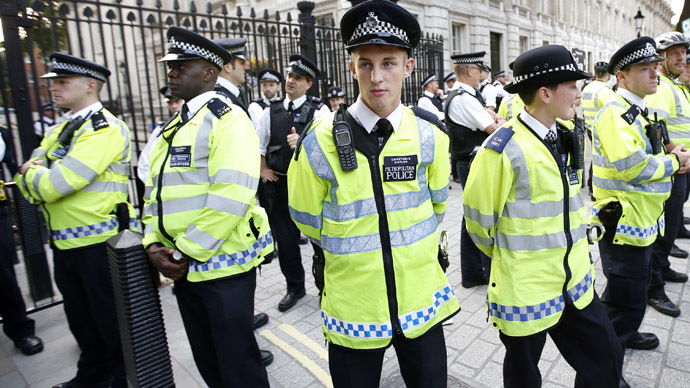The UK has launched a new crime agency to combat organized crime in Britain. The agency’s backers have dubbed it the “British FBI,” but critics argue that with two predecessors in the last 15 years the institution is merely an “exercise in rebranding.”
The nascent organization has been the source of animated debate
in the UK, with the current Conservative government championing
the National Crime Agency (NCA) as a major disincentive for
organized criminals.
The NCA’s primary role will be to take on the security
responsibilities of its predecessor, the Serious Organized Crime
Agency (SOCA), which was disbanded following a scandal that saw
the chairman resign after he failed to declare a private business
interest.
The NCA will also have expanded powers and work closely with
regional police forces in the UK. It will be operational in
England, Scotland and Wales, but will have a restricted role in
Northern Ireland.
In addition, the NCA will take on most of SOCA’s staff and will employ 4,500 new officers with a budget of over 450 million pounds ($722 million).
The NCA will aim to make better use of the UK’s 44 local police forces in order to prioritize the most serious criminals and gangs.
It is estimated that there are some 37,000 people working in 5,500 groups involved in organized crime in the UK.
The NCA will also recruit so-called ‘specials’ from the private sector with specific skill sets.
These will be similar to special constables who work as volunteer policemen, but with skills in key areas such as banking and accountancy. Although many career detectives in the UK are reticent about the effectiveness of current serving special constables.
Home Secretary Theresa May told the BBC that the Agency would concentrate on cyber-crime, border policing, child exploitation, and play more of a general role in the fight against crime in the UK.
“I think in the past organized crime hasn’t been given sufficient focus. Organized crime is changing, it’s becoming more diverse,” May told reporters.
She added that the aim of the new agency was not just to put more criminals behind bars but to relentlessly disrupt the activities of criminal gangs.
The head of the new organization, Keith Bristow, has stressed that the NCA will be far more transparent than its predecessor with a view to discouraging crime.
He also promised to work harder to understand areas of crime such as fraud that remain under-reported and under-recorded.
However, unlike the FBI, the NCA will not cover areas of national security or counter-terrorism. This will be left to MI5 and MI6 as well as the police’s Counter Terrorism Command.
“We want the criminals to know who we are because we want them
to fear our attention,” said Keith Bristow, the
director-general of the new National Crime Agency to the
Independent.
Budget cut
The critics of the new organization have sought to downplay the
government hype surrounding the launch of the NCA. The Labour
Party has slammed the NCA as an “exercise in rebranding”
and criticized it as ill-prepared to deal with an increase in
online crime.
"Most of the NCA is just the rebranding of existing
organizations such as the Serious Organised Crime Agency, but
with a substantial 20% cut imposed by the Home Office on their
overall budget," said shadow policing minister David Hanson
to the BBC.
This is not the first time a crime agency of this kind has been
launched in the UK. Over the past 15 the UK government has come
up with three different agencies, starting with the National
Crime Squad in 1998. In 2006 the government inaugurated the
Serious Organized Crime Agency (SOCA) which former Prime Minister
Tony Blair said “would make hell” for organized criminals.
Former members of SOCA told the Independent that the organization
lacked cohesion and was fraught with internal squabbling.
The NCA estimates that over 37,000 people are involved in
organized crime that has an impact on the UK. Moreover, the
agency has calculated that Britain loses 9 billion pounds ($14
billion) in organized cyber-fraud.

